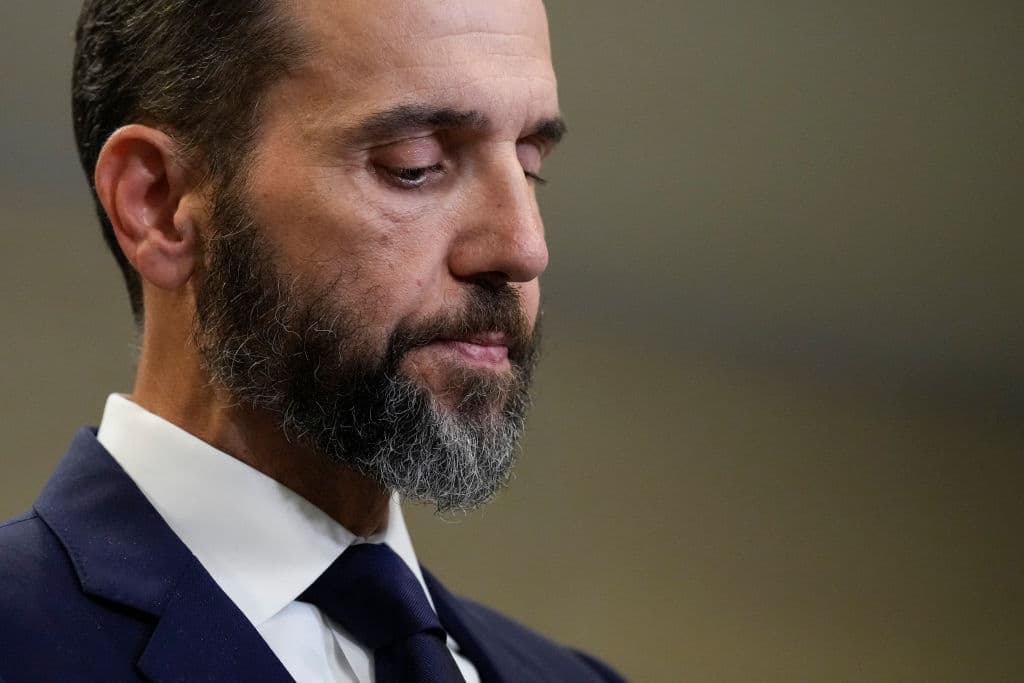Judge Cannon Declares Herself ‘Disappointed’ in Jack Smith, Whose Mar-a-Lago Case Against Trump Is in Serious Danger
The judge expresses ‘concern’ over the special counsel’s shifting stance on secrecy.

Judge Aileen Cannon is “disappointed” in Special Counsel Jack Smith, a development that does not bode well for the prosecutor’s hopes to put President Trump on trial for mishandling America’s secrets at Mar-a-Lago.
The reprimand came in a weekend order from Judge Cannon disposing of a range of matters relating to requests for redactions submitted by Messrs. Trump and Smith. The special counsel has, she explains, asserted a “need for continued secrecy over the subject material” found at the Palm Beach manse.
Judge Cannon’s reprimand of Mr. Smith for pursuing excessive secrecy in respect of witness identity could provide Mr. Trump with an opportunity to mount a challenge on the basis of the Confrontation Clause. That clause of the Constitution ordains that “in all criminal prosecutions, the accused shall enjoy the right … to be confronted with the witnesses against him.”
While the details that underlie this growing tension between judge and prosecutor are obscure — much of this case is under seal, because of the nature of the evidence and sensitivity of the secrets the documents contain — the deterioration of trust between Judge Cannon and the special prosecutor is now in sharp relief.
While omnibus orders that dole out wins and losses to both sides are not unusual in pre-trial litigation, Judge Cannon’s accompanying gloss illuminates that the special counsel is firmly on the outs with the jurist, who was nominated to the federal bench in south Florida by Mr. Trump in 2020. Mr. Smith’s case against Mr. Trump is in heavy seas.
Judge Cannon writes that she “deems it necessary to express concern over the Special Counsel’s treatment of certain sealed materials in this case.” She appears particularly perturbed by what she characterizes as Mr. Smith’s shifting account of what he wants redacted. She explains that the “Special Counsel stated, without qualification, that he had no objection to full unsealing of previously sealed docket entries” that were related to Mr. Trump’s accusation of prosecutorial misconduct.
Mr. Smith, though, then reversed himself, and demanded that those materials be sealed “in order to publicly and transparently refute defense allegations of prosecutorial misconduct.” Judge Cannon grants him a “Fair enough,” but insists that there is “no basis to conclude that the Special Counsel could not have defended the integrity of his Office” while simultaneously protecting witnesses.
Judge Cannon warns both parties against “requests that undermine any prior representations or positions except upon full disclosure to the Court and appropriate briefing,” and insists that the “sealing and redaction rules should be applied consistently and fairly.” It is in this context that Judge Cannon expresses her disappointment with the special counsel’s shifting stance.
Mr. Smith has himself, on another occasion, acknowledged indulging in inconsistency. That came when he said copies of the evidence provided to the case’s defendants were not preserved in the same order as how they were found at Mar-a-Lago. The special counsel’s office, though, presented to Judge Cannon that the order of documents was identical to their sequence the day of the FBI search. He acknowledges his account was “inconsistent.”
Mr. Trump contends that the special counsel’s treatment of the evidence amounts to “spoliation,” a charge Mr. Smith denies. He argues that the sequencing of materials is harmless error, meaning that it will have no bearing on Mr. Trump’s ability to mount an effective defense. When that defense will transpire is an open question, as Judge Cannon has ruled that “finalization of a trial date at this juncture … would be imprudent and inconsistent.”
The Supreme Court has also held that the public, along with the defendant, has a First Amendment right to a public trial. That presumption of publicity could inform Judge Cannon’s gimlet-eyed treatment of Mr. Smith’s demands for secrecy. She is likely also sensitive because the prosecutor called one of her rulings with respect to secrecy a “manifest injustice.” She reversed, but now appears eager to hold Mr. Smith to account for his own zig-zags.

